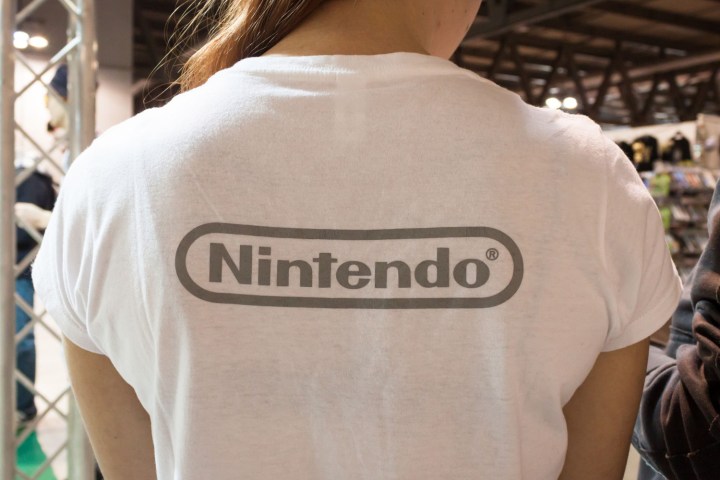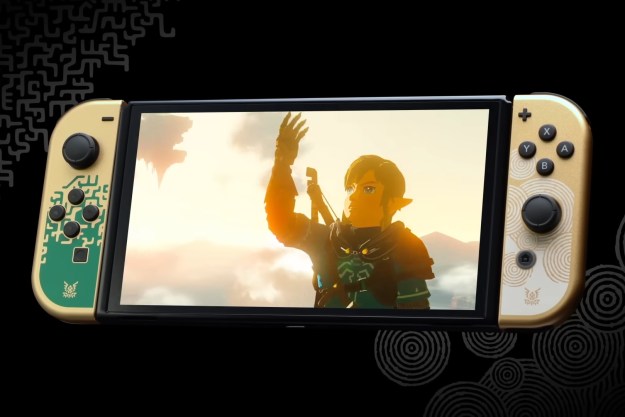The Legend of Zelda: Tears of the Kingdom will be Nintendo's first Switch game to be priced at $70. News that Tears of the Kingdom, a sequel to one of the bestselling and most critically acclaimed titles on the system, will have an increased price compared to its predecessor came as a surprise over three-and-a-half years after its announcement. It also raised questions about what the future of pricing for Nintendo games will be, especially as Sony, Microsoft, and third-party publishers all upped the cost of their new games in recent years.
While Nintendo will release Tears of Kingdom at $70, a spokesperson for the company tells Digital Trends that this will not always be the case for its first-party games going forward.
"No," the spokesperson said when Digital Trends asked if this is a new standard. "We determine the suggested retail price for any Nintendo product on a case-by-case basis."
The Legend of Zelda: Tears of the Kingdom – Official Trailer #2
To get more insight into the price shift, I spoke to Omdia Principal Analyst George Jijiashvili, who explains what has caused the price of games to go up in recent years and how Tears of the Kingdom demonstrates that Nintendo will "remain flexible about first-party title pricing." Ultimately, Nintendo fans are finally starting to feel the impact of inflation that's been sweeping across the game industry, even if it's only "on a case-by-case basis" for now.
The price is right
Nintendo claims that not every one of its significant first-party game will be $70, and we can actually already see that in action. Preorders just went live for Pikmin 4, which launches on July 21, after Tears of the Kingdom, and it only costs $60. Still, Zelda's price tag indicates that going forward, Nintendo will at least consider raising the price of its most anticipated games to $70. But why start with Tears of the Kingdom?
When asked why it chose Tears of the Kingdom as its first $70 Nintendo Switch game, a Nintendo spokesperson simply reiterated that the company will "determine the suggested retail price for any Nintendo product on a case-by-case basis." Still, it's a surprising choice for Nintendo to make that pricing change to just one exclusive game almost six years into the Switch's life span. Jijiashvili thinks the choice to do this with Tears of the Kingdom was a pretty apparent one for Nintendo, although it won't apply to everything going forward.
"If you are going to make a game $70, it's going to be the follow-up to one of your most critically acclaimed and bestselling games ever," Jijiashvili tells Digital Trends. "I don’t think that this means that $70 will become the standard price for all major Nintendo releases. It's worth noting that Metroid Prime Remastered is priced at $40. It's clear that Nintendo will remain flexible about first-party title pricing."
It makes basic financial sense for Nintendo to ask for a little bit more for a game it knows will be one of the biggest releases of 2023. But what factors in the game industry and world's economy at large caused Nintendo to make this decision?
Priced Out
For more than a decade, people got comfortable with AAA video games being priced at $60. Of course, there were occasional exceptions to this rule, but it was seen as an industry standard until the dawn of the PlayStation 5 and Xbox Series X. Publisher 2K was one of the first to announce a price increase, and companies like EA, Sony, and Microsoft have all followed suit. Jijiashvili chalks this up to inflation-related pressure on game publishers.
"The games industry has already been experiencing a lot of inflationary pressure," he explains. "AAA games are much more expensive to make now than they used to be, but prices have actually been declining in inflation-adjusted terms -- if prices had risen with inflation since 1990, they would now be over $90. On top of that, we’ve had a big burst of general inflation, meaning that publishers are looking at big increases in everything from salaries to tools. It’s going to be really hard for most publishers to avoid passing on all those extra costs at some point."
Jijiashvili provided us with a graphic created by Omdia that "shows what the typical price points for each generation would look like if you adjusted for inflation." As you can see, the inflation-adjusted prices are only exponentially growing, and the big game pricing shifts the graph highlights were all technically not even enough to keep up with inflation when they happened.



